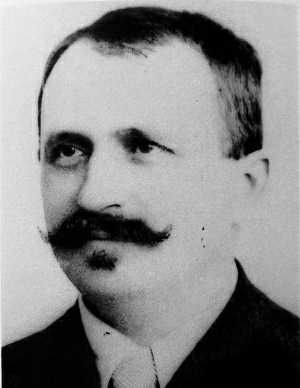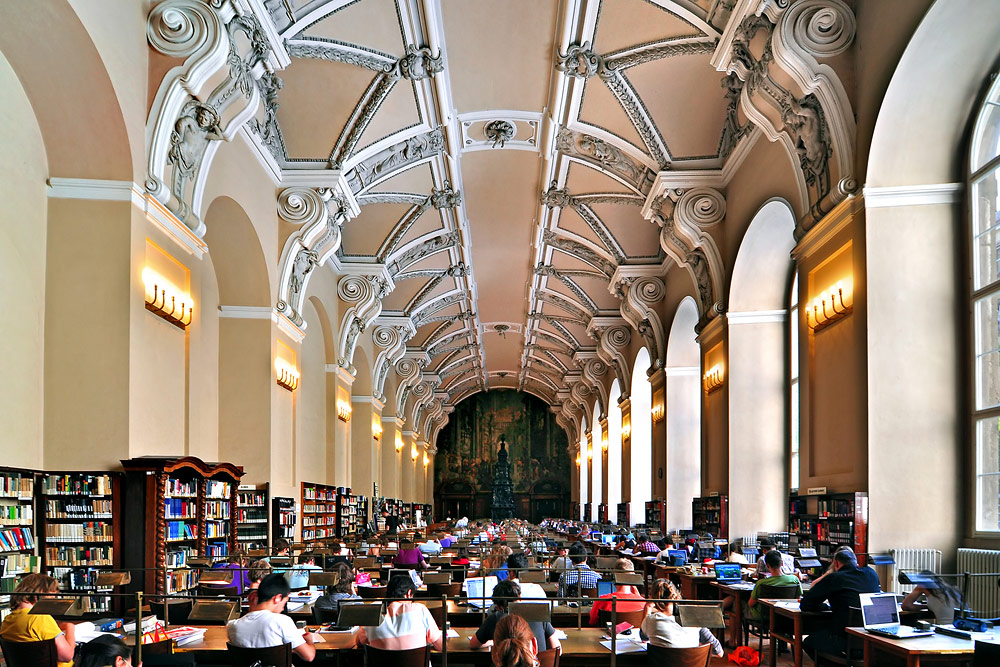|
Pavol Socháň
Pavol Socháň (6 June 1862, Liptovský Mikuláš - 26 January 1941, Bratislava) was a Slovakian photographer, ethnographer, writer and artist. He employed numerous pseudonyms, including Borivoj Rehtáčka, Dobroslav Pokrievka, Matej Trúbela, P. S. Zvonický, and Dušan Lipeň. Biography His father was a Master saddler. He began his education at the Evangelical school in Kežmarok, but was expelled for teaching Slovak to his fellow students, which was forbidden at that time. Then, from 1879 to 1881, he attended the teacher training institute in Lučenec, but was expelled again for his "patriotic activities". As a result, he was banned from all the local schools. After that, he moved to Prague, where he studied at the Academy of Fine Arts from 1882 to 1885, with František Čermák and Antonín Lhota. While there, he audited lectures in ethnography at Charles University. Finally, he attended the Academy of Fine Arts, Munich, where he learned photography. Upon returning to Prag ... [...More Info...] [...Related Items...] OR: [Wikipedia] [Google] [Baidu] |
Pavel Sochan
Pavel ( Bulgarian, Russian, Serbian: Павел; Czech, Slovene, and (although Romanian also uses Paul); ; ; ) is a male given name. It is a Slavic cognate of the name Paul (derived from the Greek Pavlos). Pavel may refer to: People Given name *Pavel I of Russia (1754–1801), Emperor of Russia *Paweł Adamowicz (1965–2019), Polish politician * Paweł Brożek (born 1983), Polish footballer *Paweł Cibicki (born 1994), Swedish footballer *Paweł Deląg (born 1970), Polish actor *Pavel Durov (born 1984), Telegram founder *Paweł Fajdek (born 1989), Polish hammer thrower *Pavel Haas (1899-1944), Czech composer who was murdered during the Holocaust *Paweł Jasienica (1909–1970), Polish historian, journalist, essayist and soldier *Paweł Kisielow (born 1945), Polish immunologist *Pavel Kuzmich (born 1988), Russian luger *Paweł Łukaszewski (born 1968), Polish composer *Paweł Mąciwoda (born 1967), Polish bassist for the German rock band Scorpions *Paweł Mykietyn (born ... [...More Info...] [...Related Items...] OR: [Wikipedia] [Google] [Baidu] |
National Cemetery In Martin
The National Cemetery () in Martin, Slovakia is the final resting place of many important personalities of Slovak history. The list includes writers, poets, national activists, pedagogues, etc. The reason why Martin was selected as the site for the National Cemetery was its role as the center of Slovak culture during the years of formation of the Slovak nation (19th century). List of notable burials * Juraj Antal – doctor-physiologist * Július Barč-Ivan – writer * Martin Benka – painter * Ján Bodenek – writer * Emanuel Teodor Bohm – supporter of Slovak literature in the United States * Mária Bohmová-Dziaková – supporter of Slovak literature in the United States * Ján Bulík – chairman of Matica Slovenská in Yugoslavia * Blažej Bulla – architect and folklorist * Juraj J. Cincík – sacral painter * Jozef Cíger Hronský – writer * Samuel Czambel – linguist * Ferdinand Čatloš – generál, minister * Štefan Marko Daxner – activist * ... [...More Info...] [...Related Items...] OR: [Wikipedia] [Google] [Baidu] |
Slovak Journalists
Slovak may refer to: * Something from, related to, or belonging to Slovakia (''Slovenská republika'') * Slovaks, a Western Slavic ethnic group * Slovak language, an Indo-European language that belongs to the West Slavic languages * Slovak, Arkansas, United States See also * Slovák, a surname * Slovák, the official newspaper of the Slovak People's Party Andrej Hlinka, Hlinka's Slovak People's Party (), also known as the Slovak People's Party (, SĽS) or the Hlinka Party, was a far-right Clerical fascism, clerico-fascist political party with a strong Catholic fundamentalism, Catholic fundamental ... * {{disambiguation, geo Language and nationality disambiguation pages ... [...More Info...] [...Related Items...] OR: [Wikipedia] [Google] [Baidu] |
Ethnographers
Ethnography is a branch of anthropology and the systematic study of individual cultures. It explores cultural phenomena from the point of view of the subject of the study. Ethnography is also a type of social research that involves examining the behavior of the participants in a given social situation and understanding the group members' own interpretation of such behavior. As a form of inquiry, ethnography relies heavily on participant observation, where the researcher participates in the setting or with the people being studied, at least in some marginal role, and seeking to document, in detail, patterns of social interaction and the perspectives of participants, and to understand these in their local contexts. It had its origin in social and cultural anthropology in the early twentieth century, but has, since then, spread to other social science disciplines, notably sociology. Ethnographers mainly use qualitative methods, though they may also include quantitative data. ... [...More Info...] [...Related Items...] OR: [Wikipedia] [Google] [Baidu] |
Slovak Photographers
Slovak may refer to: * Something from, related to, or belonging to Slovakia (''Slovenská republika'') * Slovaks, a Western Slavic ethnic group * Slovak language, an Indo-European language that belongs to the West Slavic languages * Slovak, Arkansas, United States See also * Slovák, a surname * Slovák, the official newspaper of the Slovak People's Party Andrej Hlinka, Hlinka's Slovak People's Party (), also known as the Slovak People's Party (, SĽS) or the Hlinka Party, was a far-right Clerical fascism, clerico-fascist political party with a strong Catholic fundamentalism, Catholic fundamental ... * {{disambiguation, geo Language and nationality disambiguation pages ... [...More Info...] [...Related Items...] OR: [Wikipedia] [Google] [Baidu] |
1941 Deaths
The Correlates of War project estimates this to be the deadliest year in human history in terms of conflict deaths, placing the death toll at 3.49 million. However, the Uppsala Conflict Data Program estimates that the subsequent year, 1942, was the deadliest such year. Death toll estimates for both 1941 and 1942 range from 2.28 to 7.71 million each. Events Below, the events of World War II have the "WWII" prefix. January * January– August – 10,072 men, women and children with mental and physical disabilities are asphyxiated with carbon monoxide in a gas chamber, at Hadamar Euthanasia Centre in Germany, in the first phase of mass killings under the Aktion T4 program here. * January 1 – Thailand's Prime Minister Plaek Phibunsongkhram decrees January 1 as the official start of the Thai solar calendar new year (thus the previous year that began April 1 had only 9 months). * January 3 – A decree (''Normalschrifterlass'') promulgated in Germany by Martin ... [...More Info...] [...Related Items...] OR: [Wikipedia] [Google] [Baidu] |
1862 Births
Events January * January 1 – The United Kingdom annexes Lagos Island, in modern-day Nigeria. * January 6 – Second French intervention in Mexico, French intervention in Mexico: Second French Empire, French, Spanish and British forces arrive in Veracruz, Mexico. * January 16 – Hartley Colliery disaster in north-east England: 204 men are trapped and die underground when the only shaft becomes blocked. * January 30 – American Civil War: The first U.S. ironclad warship, , is launched in Brooklyn. * January 31 – Alvan Graham Clark makes the first observation of Sirius B, a white dwarf star, through an eighteen-inch telescope at Northwestern University in Illinois. February * February 1 – American Civil War: Julia Ward Howe's "Battle Hymn of the Republic" is published for the first time in the ''Atlantic Monthly''. * February 2 – The Dun Mountain Railway, first railway is opened in New Zealand, by the Dun Mountain Copper Mining Compan ... [...More Info...] [...Related Items...] OR: [Wikipedia] [Google] [Baidu] |
National Library Of The Czech Republic
The National Library of the Czech Republic () is the central library of the Czech Republic. It is directed by the Ministry of Culture (Czech Republic), Ministry of Culture. The library's main building is located in the historical Clementinum building in the centre of Prague, where approximately half of its books are kept. The other half of the collection is stored in the district of Hostivař. The National Library is the biggest library in the Czech Republic, housing around 6 million documents. The library currently has 20 627 registered readers. Although comprising mostly Czech texts, the library also stores older material from Turkey, Iran and India. The library also houses books for Charles University in Prague. History In the 13th century, the ''Studium generale'' school was founded in the Dominican Order, Dominican monastery in Prague's Old Town (Prague), Old Town. This school, including its library, merged with the university in the 14th century. In 1556, monks of the Socie ... [...More Info...] [...Related Items...] OR: [Wikipedia] [Google] [Baidu] |
Alexander Strelinger
Alexander Strelinger (10 September 1934 in Martin – 10 July 2022 in Prague) was a Slovak cinematographer and photographer. After graduating from the Film and TV School of the Academy of Performing Arts in Prague in 1960, he became a cinematographer for documentary films in Bratislava, working most notably on the films ''Človek a hra'' (1969), ''Ľudovít Fulla'' (1972), ''Terchovská muzika'' (1984), and ''Pavol Socháň'' (1987) with Martin Slivka, the films ''Nemecká'' (1974) and ''Len lístok poľnej pošty'' (1977) with Peter Solan, the films ''Analógie'' (1965), ''Impresia'' (1966), and ''Variácie kľudu'' (1966) with Dušan Hanák, and the films ''Slovenský raj'' (1966), ''Črty z Indie'' (1967), ''Hr. Peklo'' (1967), and ''Mimoriadne cvičenie'' (1971) with Vladimir Kubenko. He was awarded a lifetime achievement award at the Kamera Awards in 2008. He also taught documentary filmmaking at the Academy of Performing Arts in Bratislava The Academy of Performing Arts i ... [...More Info...] [...Related Items...] OR: [Wikipedia] [Google] [Baidu] |
Martin Slivka
Martin Slivka (1 November 1929 in Spišský Štiavnik – 23 September 2002 in Bratislava Bratislava (German: ''Pressburg'', Hungarian: ''Pozsony'') is the Capital city, capital and largest city of the Slovakia, Slovak Republic and the fourth largest of all List of cities and towns on the river Danube, cities on the river Danube. ...) was a Slovak documentary filmmaker, director, screenwriter, and ethnographer. He is best remembered for his documentaries ''Metamorfóza vlákna'' (1968), ''Človek a hra'' (1968), ''Deti a hudba'' (1969), ''Fašiangy'' (1969), and ''Ľudová kultúra na Slovensku'' (1972). He was married to journalist Olga Slivková. References 1929 births 2002 deaths Slovak documentary filmmakers Slovak film directors Slovak screenwriters Slovak male screenwriters Ethnographers Documentary film directors {{Slovakia-film-director-stub ... [...More Info...] [...Related Items...] OR: [Wikipedia] [Google] [Baidu] |
Trenčín
Trenčín (, also known by other #Names and etymology, alternative names) is a List of towns in Slovakia, city in western Slovakia of the central Váh River valley near the Czech Republic, Czech border, around from Bratislava. It has a population of more than 55,000, which makes it the eighth largest municipality of the country and is the seat of the Trenčín Region and the Trenčín District. It has a medieval castle, Trenčín Castle, on a rock above the city. Trenčín is chosen as the European Capital of Culture in 2026. Names and etymology Trenčín was first mentioned under the Greek name ''Leukaristos'' (Λευκάριστος), depicted on the Ptolemy world map around 150 AD . During the course of the Marcomannic Wars between the Roman Empire and Germanic Quadi, the Romans carved an inscription on the rock under the present-day castle in 179 AD and the place was mentioned as ''Laugaricio''. For a long time it was considered the northernmost known presence of the Roma ... [...More Info...] [...Related Items...] OR: [Wikipedia] [Google] [Baidu] |



